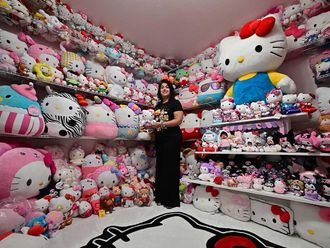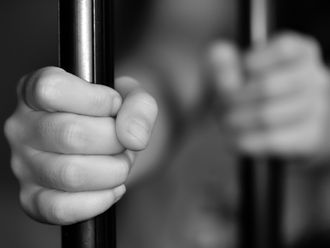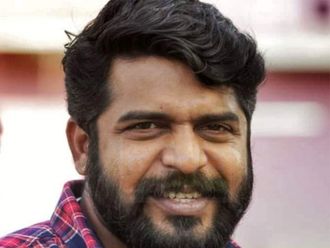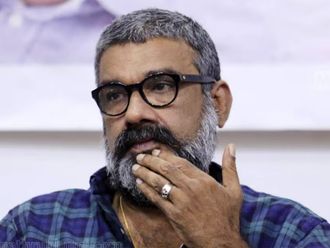Abu Dhabi: Two prominent filmmakers, Doug Liman, and Oday Rasheed, presented the hard-edged realities about the politics connected to the war in Iraq and the conditions the country is in today, during a press conference at the Abu Dhabi Film Festival on Thursday.
The surprising similarities between two films on Iraq, “Fair Game” by Jewish-American filmmaker Liman, known for his critically acclaimed films Mr and Mrs. Smith (2005), and the Bourne Identity (2001) – and “Qarantina” by Iraqi film maker Rasheed, who also wrote, produced and directed Underexposure (2005), were highlighted, alongside the challenges and truly shocking incidents both filmmakers faced.
“As a Jewish-American I make a big juicy target, so the decision to shoot in neighbourhoods and spots in Iraq to show how the US messed up the city before 2003, was challenging. Yet I felt a moral responsibility to set the record straight by talking to the Iraqi people and seeing things with my own eyes,” Liman said.
Speaking about “Fair Play” Liman said his core focus was to portray what he said were revelations of falsified evidence in the lead-up to the 2003 invasion of Iraq.
“I try to deal with one specific issue in my film, which is the US president lying to the American people about the rationale behind the Iraqi war,” Liman said.
“As an American citizen, I still have no idea why we went into Iraq. No-one honestly came out and told us the truth. All I know is that what Bush wanted the American people to know about Iraq was an outright lie, and my film deals with that lie, and hope it re-kindles interest on the subject,” Liman added.
While Liman faced challenges - “the Americans tried to stop us from shooting the film” - Rasheed, as an Iraqi, said he was both familiar with the location, and able to build a relationship with various security forces in Baghdad, which helped him film in high risk areas.
“The US embassy had contacted me about making films about Iraq, and offered to establish a film institute, but the project didn’t work out,” said Rasheed, who said he faced life-threatening challenges.
“While shooting a scene in Qarantina, I was 500 metres away from a car bomb, which exploded outside the Ministry of Justice. I am just like any doctor or engineer in Iraq, who has to work and find their way, while trying to avoid dangers in the streets of Iraq. When you have good contacts with security forces in Baghdad, you know which areas to try to avoid, even though as bizarre as this may sound, live war scenes help push my imagination in the location I’m shooting in,” Rasheed said.
The Iraq producer said his biggest challenge however, was upsetting members of his society. “Many religious scholars and politicians are unhappy with some of the stories I portray in my movies, such as child abuse and male chauvinism. But I don’t think about this during my film-making, I just focus on telling a story the way it is,” Rasheed said.
While film theatres in Baghdad are in poor condition, Rasheed said he hoped to release Qarantina in at least three big cities in Iraq, including Baghdad.
“Iraq doesn’t have an official censorship on films, which is to our advantage. You don’t have to take permission to shoot for a script, or screen for a film, even though you still need to inform the authorities, so that they can be aware of your project,” he explained.











